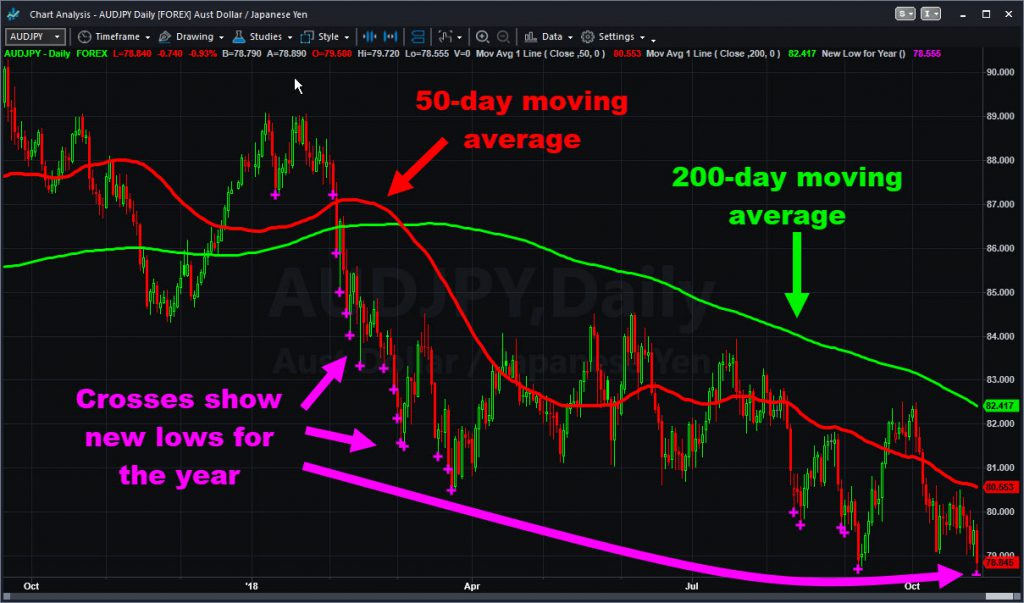Asian currencies are still flashing red signals as the situation in China worsens.
The yuan hit a 10-year low against the U.S. dollar overnight before rebounding slightly. Meanwhile, the safe-haven Japanese yen continues to advance against other economically sensitive currencies like the euro and Australian dollar.
While China‘s economy has struggled for months, the country’s latest troubles involve potential worsening of risk in its financial system. For example, Bloomberg has reported that mutual funds linked to the ruling communist government have quietly liquidated some domestic equity holdings.
Other stories have detailed collateral risk for securities firms that have made loans on publicly traded stocks. You know the story on that: Once prices begin to fall, brokers call in loans. That triggers more selling. A classic “margin call.”
So-called “shadow financing” has also shrunk to its lowest levels since the start of year. This encompasses a murky array of Enron-esque practices that flourished when China was awash in money.

It’s important to realize that scenarios like this have played out many times in history, especially when an economy develops at a breakneck pace. People make a ton of money and think the good times will never end. And because it’s all so new, there aren’t enough safeguards in place.
Foolish loans are made, which makes the boom even greater for a while. But then when the air starts to come out the balloon, all that irrational risk-taking goes in reverse. Just look at England in 1825, Wall Street in 1929, Japan in 1990 or U.S. housing in 2008.
At this point, it’s not clear a full-blown crisis will occur. But if it does, traders may want to be ready. Economically sensitive assets like oil (@CL), copper (@HG), Euro futures (@EC) and Australian dollar futures (@AD) could decline if panic spreads. Likewise, the yen (@JY) and possibly gold (@GC) could benefit.
In conclusion, this isn’t a trade recommendation or even a prediction. This post is just trying to outline some of the big issues and possible opportunities that may arise if China continues to struggle.























